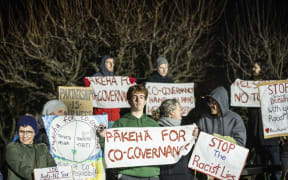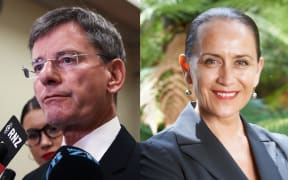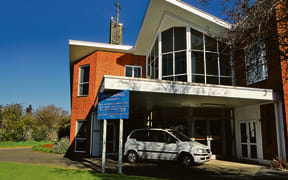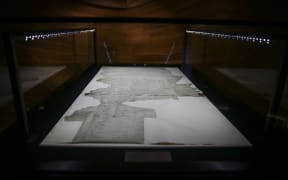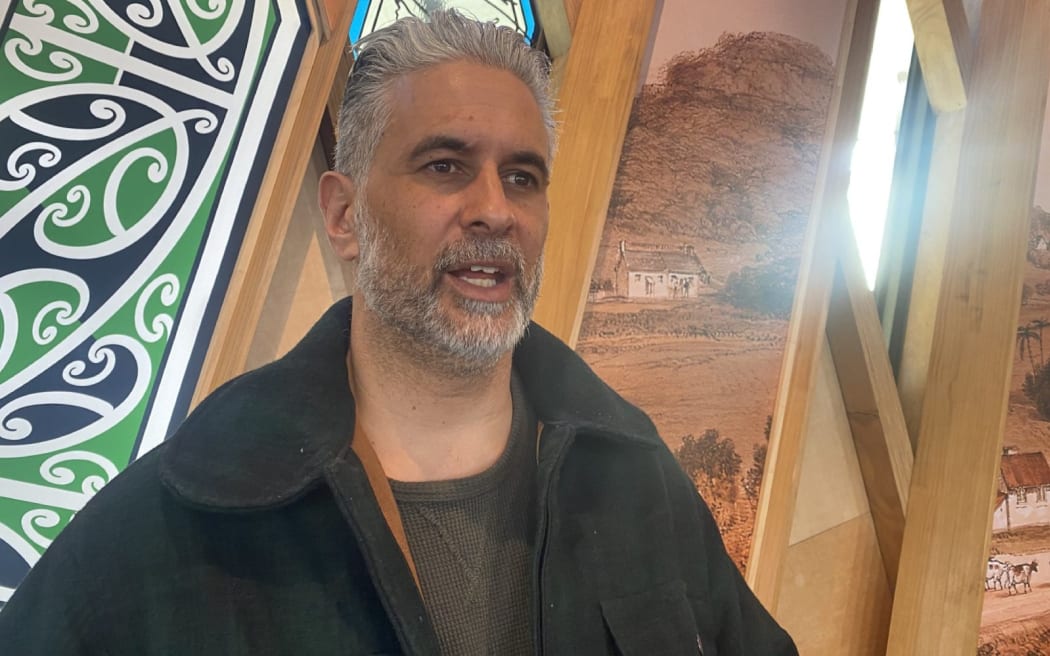
Taranaki Cathedral Dean Jay Ruka. Photo: Supplied
The organiser of a series of Taranaki talks about co-governance says he wants to dispel needless fears around the issue.
The Super-Awesome Origin Story of Co-Governance will see four evening talks at Taranaki Cathedral's Te Whare Hononga, beginning in a fortnight.
The cathedral's Dean Jay Ruka said talk about co-governance was mostly framed in fear.
"I wondered, how I could take it to the opposite of that spectrum of fear and just make it the most outrageously positive idea that we've ever seen?"
Ruka said the fear of co-governance came after years of hostile debate over the Treaty of Waitangi.
"It's framed with antagonism and people are scared of it… Because we've seen generations of rightful protest, the Pākehā mind wants to back away from that, because nobody wants to sign up to antagonism.
"It's received by the majority of New Zealand through the lens of loss: We're missing out, we're losing."

But Ruka said understanding the story behind co-governance and the Treaty could bring a sense of maungārongo (peace) to people.
"You've got to speak to that wairua, understand that wairua, how people have built up a defence mechanism in themselves."
"They'll come away with the idea that co-governance is the best of the Pākehā imagination and the best of the indigenous Māori imagination. What a win it is for our land if those two imaginations are working together."
Co-governance is an arrangement to share decision-making between central or local government and other stakeholders - in this case iwi or hapū.
In many cases it is about managing natural resources, often with particular attention to cultural and environmental impacts.
Co-governance is also often a label used where co-management is perhaps a more accurate term, when councils and Māori collaborate to operate a public amenity or service or put a policy into practice.
Councils are increasingly utilising co-governance to meet their legislated Treaty obligations, but it has become a political hot potato, especially in the lead-up to October's election.
Ruka said the first session at the cathedral would focus on why the Crown wanted a Treaty and why Māori were interested in signing it.
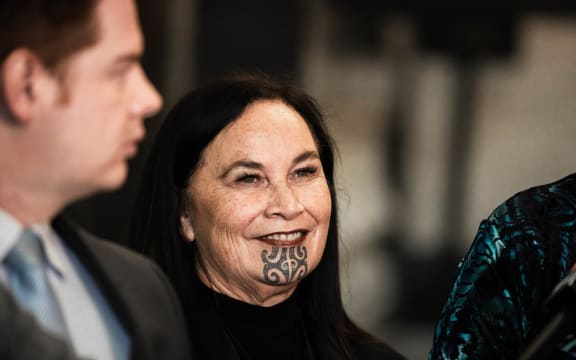
Debbie Ngarewa-Packer Photo: RNZ / Samuel Rillstone
The following week would look at the Te Reo and English versions of the Treaty and arguments that British sovereignty was not monolithic.
"Who is the sovereign of England right now? The king. Who exercises sovereignty? Parliament. So, there's shared sovereignty within the Westminster system at the moment."
New Plymouth's first Māori ward councillor would speak in the third week, along with Puna Wano-Bryant and the cathedral's priest Dan Lander, who both pushed for the ward as part of Rongomau Community Action.
The final week would feature Taranaki election candidates: Te Pāti Māori co-leader and MP Debbie Ngarewa-Packer, New Plymouth Labour MP Glen Bennett, and National candidate and former Taranaki Regional Council chairman David MacLeod.
"We're going to have a conversation about their aspirations, their considerations, about what does co-governance mean to them now - what could it look like for them in the next 50 years?
"I'll keep it away from a political debate, I want it to be a session of imagination - but we'll see how that goes because it's one month from the election."
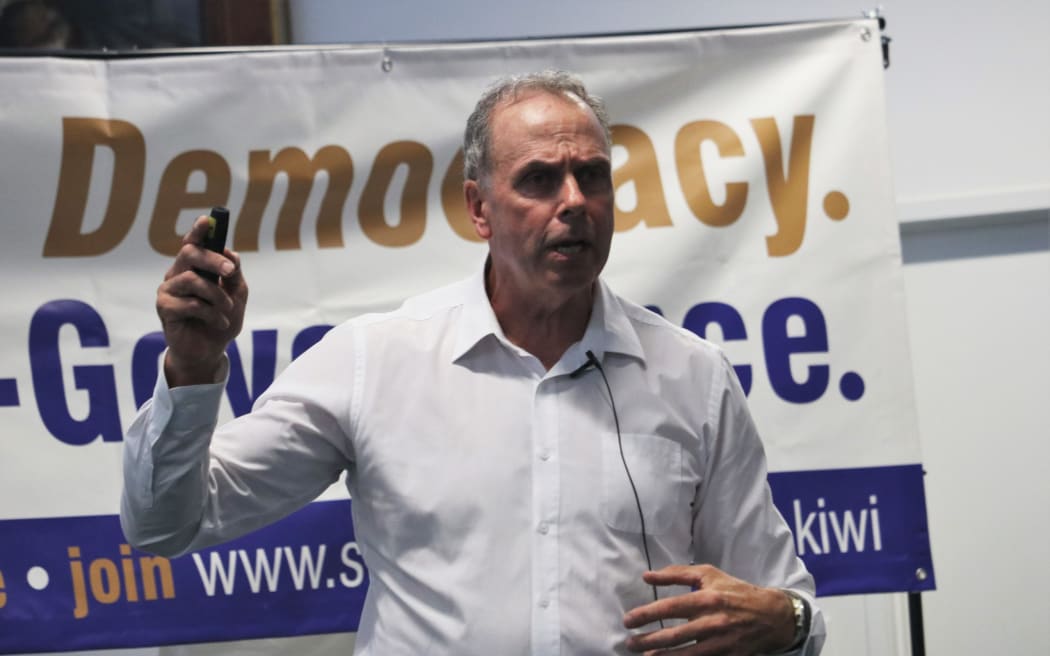
Julian Batchelor. Photo: LDR / Peter de Graaf
Two weeks ago, the Taranaki leg of a nationwide tour of Stop Co-Governance rallies was forced online-only, after organiser Julian Batchelor failed to secure a venue.
New Plymouth Raceway became the latest of many venues across the country to cancel a booking by Stop Co-Governance, citing safety concerns over heated meetings and protests at previous rallies.
Ruka said Batchelor had a right to speak and others a right to protest.
But he was disappointed Batchelor ignored an invitation from Rongomau Community Action to a discussion at Te Whare Hononga.
"[They] invited him to a conversation, so that's weak man - bring it to the table. It feels like the last stand of the Don Brash era."
The Anglican Church had a place in the debate as missionaries were central to the Treaty signing in 1840.
It could also offer insight from its own co-governance efforts, said Ruka.
In 1984 the church set up the Anglican Bicultural Commission on the Treaty of Waitangi, leading to a new constitution in 1992 with three autonomous tikanga: Māori, Pākehā and Pāsifika.
Ruka said Anglicans were still working at making that effective and fair, especially after the value of predominantly urban property under the Pākehā tikanga had "gone through the roof" over the past three decades.
"That's all being talked about by this generation."
"Now Taranaki Cathedral is the first of our eight cathedrals to come under both Pākehā and Māori tikanga."
The weekly series begins at 7pm on 22 August at Taranaki Cathedral's Te Whare Hononga.
Local Democracy Reporting is Public Interest Journalism funded through NZ On Air.
